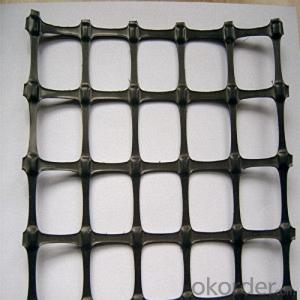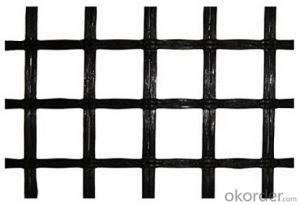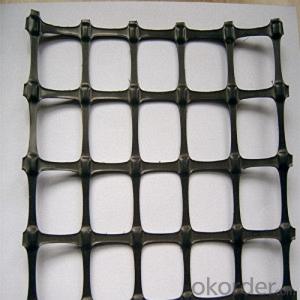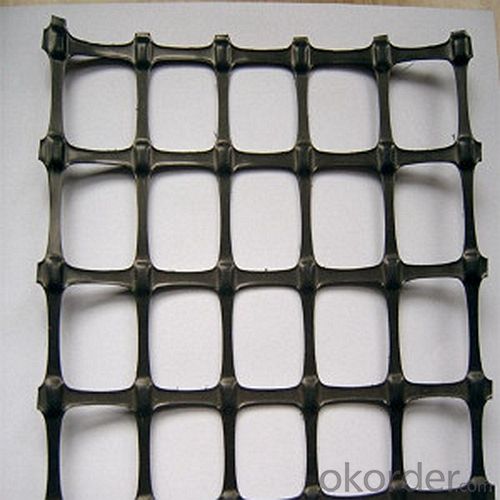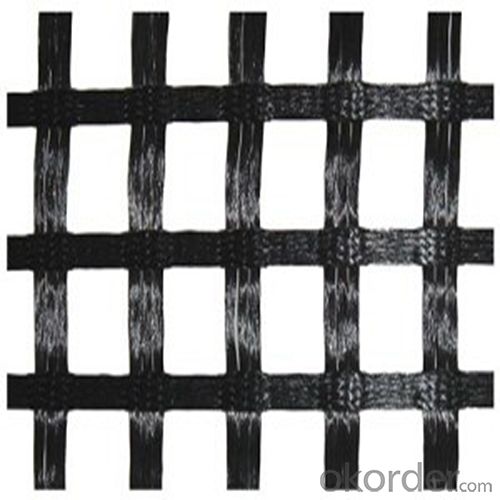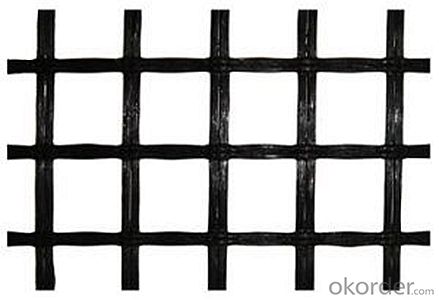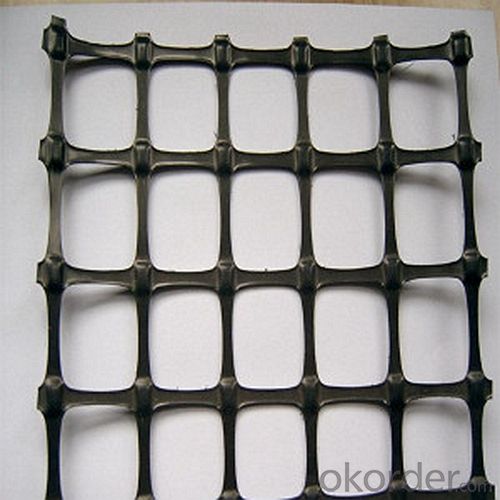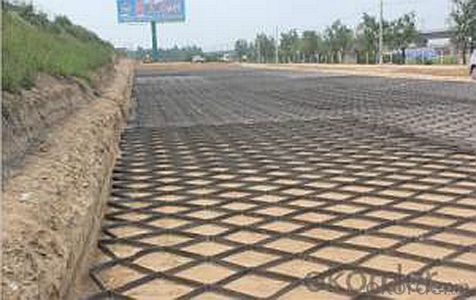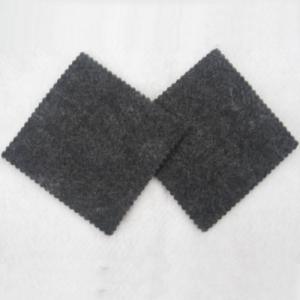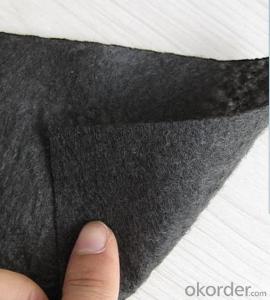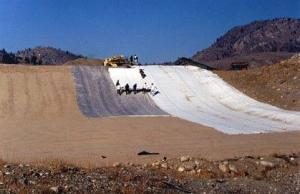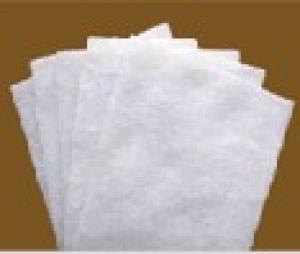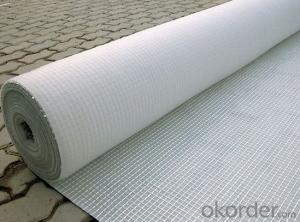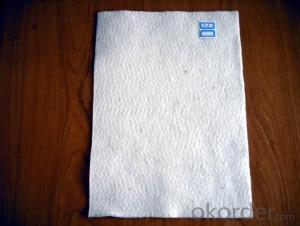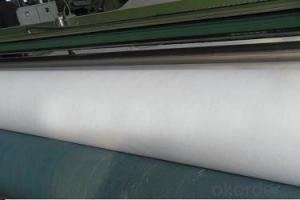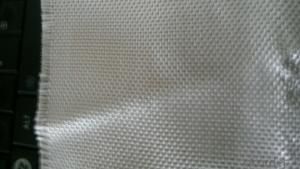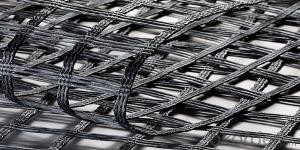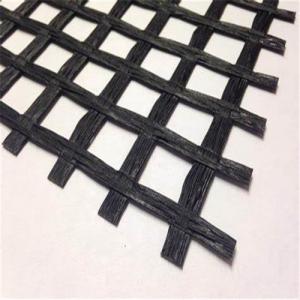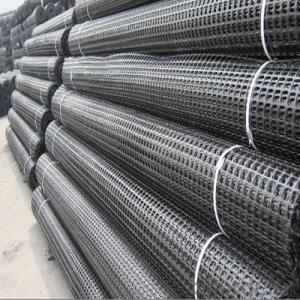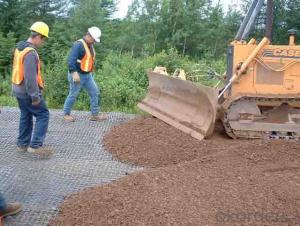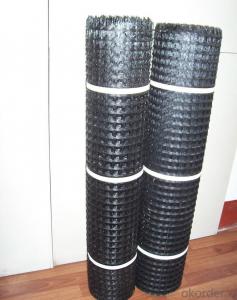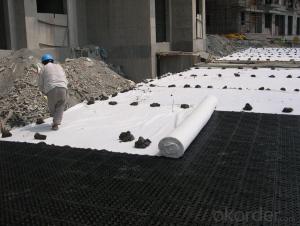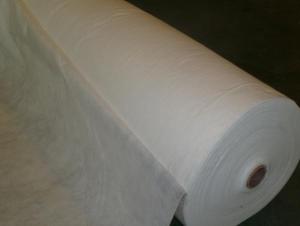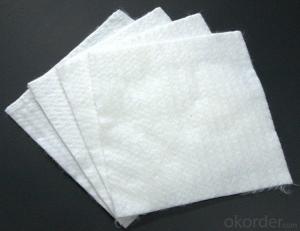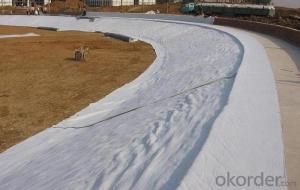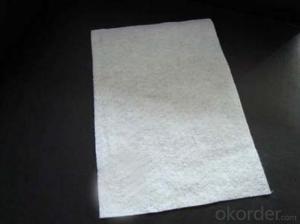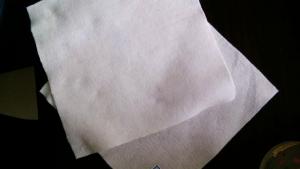Folie Geotextila Fiberglass Geogrid for Dikes, Dams, and Tunnels
- Loading Port:
- China main port
- Payment Terms:
- TT OR LC
- Min Order Qty:
- 1000 m²
- Supply Capability:
- 1000000 m²/month
OKorder Service Pledge
OKorder Financial Service
You Might Also Like
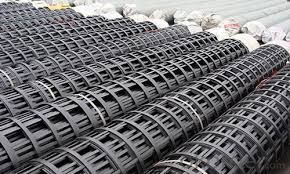
Introduction
A geogrid is geosynthetic material used to reinforce soils and similar materials. Geogrids are commonly used to reinforce retaining walls, as well as subbases or subsoils below roads or structures. Soils pull apart under tension. Compared to soil, geogrids are strong in tension. This fact allows them to transfer forces to a larger area of soil than would otherwise be the case.
Packaging & Shipping
Packing: PLASTIC FILM INSIDE, AND WOVEN BAG OUTSIDE
Shipping: About 15 days after receipt the deposit
geotextile fabric
permeability,filtration,easy for construction
ISO and CE certificate
Good quality and competitive price
Our Service
Quality assurance
1.On a regular basis or as per your request,we entrust national testing agencies to conduct quality inspections
2. Strictly in accordance with the ISO9001-2008 international quality system standard,we monitor and manage the whole process throughout production,quality testing,and measurement to ensure product quality
3. For quality-related construction delay or substandard construction(except for damage or losses due to customer’s responsibility or irresistible natural disasters),we have refunding,replacement,and repair services.We will respond to customers’ feedbacks on quality issues within 24 hours.
After-sales service
1.In order to provide customers with comprehensive technical support,we will provide technical and other related information upon request in a timely manner.
2.In required,we will appoint specialized technicians to the construction site to give technical trainings to construction people,and offer technical guidance throughout the whole construction process.
3.For damage due to shipment and delivery,after we receive the complaint,we will check the issure through provided pictures and videos.If our responsibility is confirmed,we wil offer free replacement.
4.When the construction is completed,as your request,our technical staff may participate in the final acceptance.
FAQ:
Q: What kind of payments does jenor support?
A: T/T, L/C, Cash are accepted.
Q: Do you charge for the samples?
A: Accordeing to our company policy, the samples are free, we only charge the freight fee. And we will return the freight fee during the next order.
Q: Can you produce according to customers' design?
A: Sure, we are professional manufacturer, OEM and ODM are both welcome.
Q: Do you have other products?
A: Yes, please check the pictures:
- Q: The difference between the geotextile and the geotextile
- I professional production geotextile geomembrane and other geotechnical materials, a professional construction of the welding team, wish smooth
- Q: What are the different functions of geotextiles in geoenvironmental engineering?
- Geotextiles serve various functions in geoenvironmental engineering, including erosion control, soil stabilization, drainage, filtration, and reinforcement. These materials prevent soil erosion by acting as a barrier against water flow and wind forces. They also stabilize soil by improving its mechanical properties, preventing soil movement and settlement. Geotextiles facilitate drainage by allowing water to pass through while retaining soil particles. They serve as a filtration layer, separating different soil layers and preventing the migration of fine particles. Additionally, geotextiles are used for reinforcement purposes, enhancing the strength and load-bearing capacity of soil structures.
- Q: What is the high strength to strengthen the composite geotextile
- The correct product name should be high-strength reinforced composite geotextile This is a different from the traditional geotextile new products. Reinforced geotextile is made of high-strength fiber tow and non-woven composite weaving, the process is arranged in parallel fiber bundles, give full play to the role of the yarn. Non-woven mat under which the warp technology will be wrapped around the bundle, so that fiber tow and non-woven together, not only to keep the non-woven filter, but also has the strength of woven cloth. Mainly used in: rivers and lakes, drains, reservoir dam control project and power plant ash dam, mine, airport, cargo yard, railway, highway, tunnel, municipal, environmental protection and other projects, with reinforcement, isolation, Drainage, protection and other functions, is an excellent geotechnical materials; the main role is to seepage and isolation of the grassroots level, to prevent soil erosion, sand, and the embankment foundation of the embankment increased tolerance. The superiority is mainly manifested in the following aspects: high strength composite reinforced geotextile anti-aging durability, the service life can reach and more than 100 years; high strength composite geotextile puncture high strength, physical indicators far more conventional geosynthetics Material strength index; high strength composite geotextile friction coefficient, the adhesion is particularly strong, increasing the adhesion of the isolation layer, taking into account the external factors on the impact of reinforced filter layer reduced; high-strength composite geotextile reinforced acid, alkali , Salt corrosion, in the low temperature and high temperature and UV anti-aging experiments, the physical indicators stable.
- Q: What are the different types of geotextile seams?
- There are several different types of geotextile seams, including overlap seams, butt seams, and sewn seams.
- Q: How do geotextiles help in reducing soil compaction?
- Geotextiles help in reducing soil compaction by distributing the load from heavy vehicles or equipment over a larger area, thereby minimizing the pressure exerted on the soil. This prevents the soil particles from being compressed tightly together, allowing for better soil structure and drainage.
- Q: How do geotextiles contribute to environmental sustainability?
- Geotextiles contribute to environmental sustainability in various ways. Firstly, they help in erosion control by stabilizing soil and preventing soil erosion, which in turn protects the natural environment and prevents sedimentation in water bodies. Secondly, geotextiles can be used for soil reinforcement and slope stabilization, reducing the need for excessive excavation and land disturbance. Additionally, geotextiles can be employed in waste management systems, such as landfill liners and covers, minimizing the risk of contamination to soil and groundwater. Overall, geotextiles offer eco-friendly solutions for various construction and environmental projects, promoting long-term sustainability.
- Q: How do geotextiles contribute to pavement performance?
- Geotextiles contribute to pavement performance by providing reinforcement, filtration, and separation functions. They enhance the structural integrity of the pavement by distributing loads and reducing the potential for cracking and rutting. Geotextiles also help in preventing the mixing of different layers of pavement materials, improving drainage, and reducing the intrusion of fine particles into the pavement layers. Overall, geotextiles improve the durability, longevity, and overall performance of pavements.
- Q: Composite geotextile plastic composite
- 1, plastic composite geotextile is woven with a woven fabric as the substrate, the extruded coated polyolefin resin film or polyolefin resin sandwich layer, the woven cloth and all kinds of Zhang made together. 2, the product made of bags with light weight, acid and alkali resistance, strength, moisture and other advantages. 3, widely used in chemical fertilizer, synthetic resin, coarse salt, ore and cement products such as packaging, is a good packaging of heavy packaging materials
- Q: What are the key properties to consider when evaluating geotextiles?
- When evaluating geotextiles, key properties to consider include strength, permeability, durability, and compatibility with the surrounding environment.
- Q: Are geotextiles effective in preventing soil erosion?
- Yes, geotextiles are effective in preventing soil erosion. They act as a barrier that reinforces the stability of soil, preventing it from eroding due to water or wind. Geotextiles also help in retaining moisture and promoting vegetation growth, further enhancing their effectiveness in preventing soil erosion.
Send your message to us
Folie Geotextila Fiberglass Geogrid for Dikes, Dams, and Tunnels
- Loading Port:
- China main port
- Payment Terms:
- TT OR LC
- Min Order Qty:
- 1000 m²
- Supply Capability:
- 1000000 m²/month
OKorder Service Pledge
OKorder Financial Service
Similar products
Hot products
Hot Searches
Related keywords
